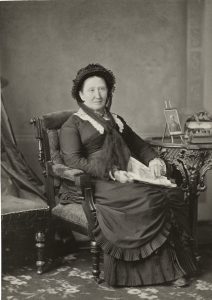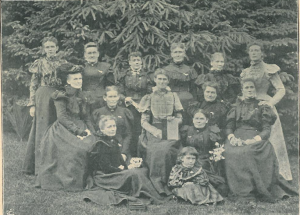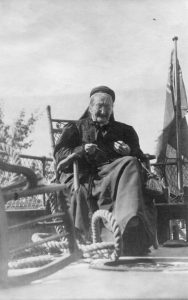The Family Matriarch
Dorothea Flavelle was a guiding force within her family and a dedicated member of her Peterborough and Lindsay communities. She was a mother, educator, Methodist, and dedicated proponent of temperance. Dorothea’s hardworking pragmatism and rigorous teaching likely gave her sons the work ethic and arithmetic skills they used to get they used to get their start in the mercantile business.
Dorothea believed that every child should have an education and would provide that service to children for free, should their mothers not be able to afford her private school tuition fees. One such child that benefited from the free tuition was quoted as describing Dorthea’s wardrobe as a “Satanic abomination” and “Quaker-like attire”. However, demonstrating her deep belief in giving back to her community, Dorothea was quoted as saying “I am unable to give as much to the Lord’s cause as I would like, and that I am therefore obliged to do my share of helping in other ways” when speaking to a mother and asking her to enroll her two children in her school. Continuing on, should the mother accept her proposal, Dorothea stated that “it would give me the happiness of feeling that I was lifting a part of another woman’s burden and at the same time sharing the Master’s work of blessing the children.”
In her close-knit family, Dorothea’s faith generated a passion for community service, a strong dedication to the church, and unwavering support of the Conservative Party. Likely due to the consequences of her husband’s alcoholism, Dorothea became a strong temperance worker. She volunteered her time with the Lindsay branch of the Women’s Christian Temperance Union as often as she could William and J. D. were consequently hard abstainers until their deaths.
Penning a letter to her future daughter-in-law Mary Cooper in 1871, her role as a mother she described was to create and mould her sons to have a “high moral rectitude” when conducting business.
Dorothea would pass away on June 23, 1908 in Toronto at the age of 85, 26 years after her husband. Remembered fondly by all those that knew her, she was buried with a poem titled “Dear Mother-Friend,” as a reflection of her habit of signing off her correspondence to one of her pupils and eventual friend with “Your loving mother-friend, D. F.”




